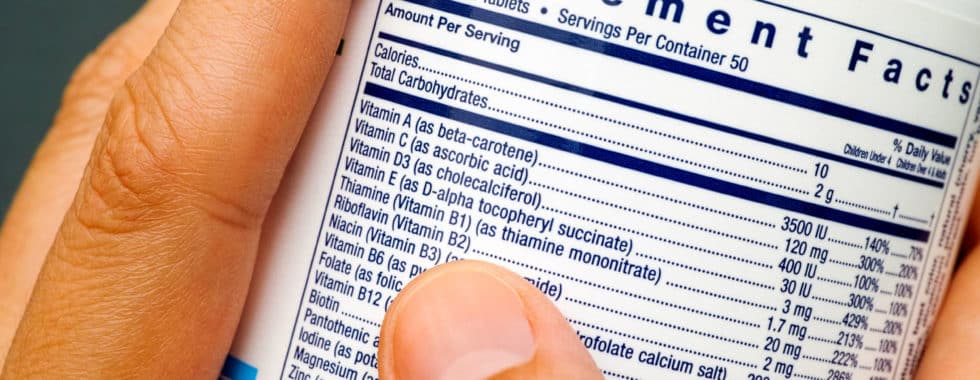What to Know in the Supplement Industry Before 2020
With the new year just weeks away, it’s not only important to stay on top of new trends but also the industry as a whole. Between recent studies and shifting consumer demands, there is a lot to know before going into 2020.
Here is what you should know before you kick off the new year.
The Growing Demand for Stress Relief

Between tight deadlines, hours in front of the computer, client meetings and the pressure of high productivity, Americans are leaning toward on-the-go lifestyles, allowing stress management to become a top health concern among consumers under 40.
Adaptogens are non-toxic plants that train the body to resist stressors of all kinds such as physical, chemical, or biological. Each adaptogen claims to have a different restorative property to help the body adapt to stress, which can be categorized as:
- Long-Term Stress: Ashwagandha and Asian ginseng will soothe stress and hormone imbalances. Research has found that holy basil may also lower stress levels.
- Intense Stress & Anxiety: Some studies have found that Siberian ginseng, Rhodiola, and Schisandra may have the ability to mediate fight-or-flight stress responses.
- Immune Health: Reishi and ginseng are believed to boost immunity.
Taking adaptogens trains the body to handle the effects of stress much like how exercise affects your body’s muscles. As you continue to use adaptogens, your body learns how to handle stress better. Research also shows that adaptogens have the potential to combat fatigue, enhance mental performance, ease depression and indirectly alleviate other health issues, such as digestive concerns and insomnia.
For many adaptogens, they can be consumed as capsules, tablets, and pre-mixed powders, allowing them to be incorporated into any lifestyle.
The Shift in Clean Label Formulation
If you thought clean label couldn’t get any bigger, think again. The global sales of clean-label food products are expected to hit $180 billion next year (up from $165 billion in 2015), according to Euromonitor International.
Having been defined as food and beverages with no artificial flavors, colors, and preservatives, clean label is now simple and transparent as clean-eating consumers not only focus on the ingredients in the products they buy but also the sustainability and traceability of them too. Consumers are becoming more savvy with their understanding of a product’s make, which has put pressure on companies to improve the quality of their products.
As consumers continue to search for products that meet their specific criteria, they will more than likely be purchasing new products. Discerning shoppers are examining products for their nutrition facts, front-of-packaging summary, and product claims. However, consumers typically avoid certain ingredients rather than seek them out. This pattern can be found in all demographics, but especially for those looking to reduce their sugar intake.
Building trust with the consumer will be imperative for success within clean label. Many Americans are going deeper into product labels and doing their research on the product’s ingredients and make. On top of this, companies should also keep in mind of these clean label trends for next year:
- Labels becoming simpler and quieter, with less “story”
- The rise of natural will intensify regulation
- DNA profiling will drive personalized nutrition
The 25th Anniversary of DSHEA
Last month marked the 25th anniversary of the Dietary Supplement Health and Education Act (DSHEA), a landmark legislation that found a balance between safety and access to dietary supplements. Since its signing, DHSEA has led the industry to massive sales growth and high consumer confidence, as well as established a strong regulatory foundation in which safety and quality control could be built.
Within the last 25 years, the industry has supported and advocated for additional measures to boost dietary supplement regulation including:
- Bioterrorism Act (2002)
- Anabolic Steroid Control Act (2004)
- Dietary Supplement and Nonprescription Drug Consumer Protection Act (2006)
- Current Good Manufacturing Practices (2007)
- Food Safety Modernization Act (2011)
- Designer Anabolic Steroid Control Act (2014)
Not only has the quality of dietary supplements increased, but also consumer confidence too. In fact, 76% of Americans trust the dietary supplement industry, 85% have overall confidence in the safety and quality of their supplements, and 95% support that manufacturers should be required to give the agency a list of their ingredients and products.
*Disclaimer: These statements have not been evaluated by the Food and Drug Administration. These products and supplements are not intended to diagnose, treat, cure, or prevent any disease.



